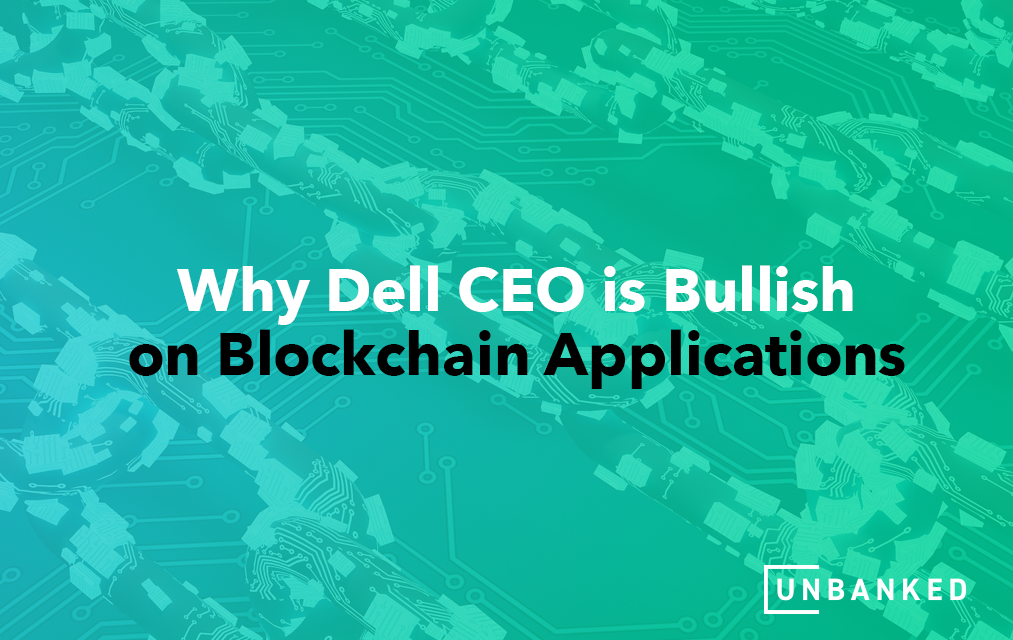The CEO and Founder of Dell Technologies, Michael Dell, said that blockchain technology is “underrated.” In the recent interview with DealBook, the New York Times newsletter, Dell was asked which financial technologies he considered overrated, underrated or, properly rated in a lightning round. However, he declined to comment on bitcoin. It is quite surprising that Dell did not talk about bitcoin, given its bullish growth in the last couple of weeks. It should be mentioned that Dell Technologies was an early adopter of bitcoin. Dell started accepting bitcoin as a form of payment for hardware and several cloud computing services. However, in 2017 it stopped accepting Bitcoin because of low demand. Since Dell was one of the early proponents of bitcoin and other cryptocurrencies, his neutral stance on bitcoin was quite unexpected.
Dell technologies have been interested in blockchain technologies for a couple of years now. In 2016, Dell Technologies and its practitioners formed a Blockchain Interest Group to discover its blockchain capabilities. They are looking to build blockchain-based solutions to develop and optimize their business processes to stay at the top of innovation. Through his recent statement, Dell emphasized that the full potential of blockchain technologies has not been utilized. Besides that, several companies are looking at ways to transform their business solutions using blockchain technologies. Elon Musk, in several tweets has talked about blockchain technologies and cryptocurrencies, even encouraging people to buy cryptocurrencies like bitcoin and dogecoin.
Blockchain Applications
Blockchain is a secure distributed ledger technology that securely records transactions. Blockchain technologies enable transactions without the interference of a third party, making it a pioneer in peer-to-peer decentralized monetary transactions. There are several applications of blockchain technologies besides cryptocurrencies.
- Money Transfers: Blockchain revolutionizes monetary transfers, especially cross-border transactions. Eliminating the need for centralized banks and authorities, it allows for faster and cheaper cross-border transactions. Banks often take a lot of time and charge large amounts of money for international transfers. Here, blockchain comes into the picture and makes transactions much cheaper, faster, and decentralized. Banks are often the target of fraud and hacks. With blockchain and the security it offers, such frauds can be reduced. Blockchain eliminates the need for intermediaries giving people complete control of their money and transactions.
- Voting: Blockchain can be used for secure voting. Blockchain technology ensures that no person votes twice and no vote can be tampered with. This will also decrease the cost of conducting an election. Blockchain can securely authenticate a user’s identity and track votes. This can eliminate the need for recounts.
- Non-fungible tokens (NFTs): NFTs are digital collectibles that certify the proof of ownership of a particular digital item (like photos, videos, digital art pieces, etc.). NFTs are based on blockchain technology which makes each NFT unique and immutable. They are becoming quite popular in today’s world since they allow individual ownership of a digital collectible.
- Healthcare: Blockchain enables secure insurance claims and storage of patients’ data. Insurance claims take months to be processed. Come blockchain, and these transactions and claims can be processed seamlessly with real-time monitoring. Doctors and patients can control how their data can be processed and shared. Removing intermediaries, blockchain can make payments and transfers efficient and cheaper.
- Education: Blockchain technology can revolutionize the education system as we know it. It can change how educational institutions store and maintain academic records and issue paper-based transcripts and recommendations. Using blockchain can make sharing of academic data more transparent, feasible, secure, and faster. This will allow educational institutions to issue degrees and transcripts securely through blockchain technology.
- Supply Chain Management: Blockchain technology can track each step of the supply chain; allow customers to know where their product has been manufactured and produced. What materials are used for its manufacture? This is especially important when customers are more and more interested in where and how their goods have been manufactured and stored. It can track the movement of goods right from their origin to their destination. The documentation process can be made much easier and simpler using the blockchain ledger. The retail giant Walmart is already using blockchain to track its farmed-produced goods. The use of blockchain can also answer the eternal question of consumers – Where is my product? They will know the real-time location of the product they ordered.
Dell and Blockchain
In 2019, Dell published a report on how it tracks plastic and packing materials made for processing using a blockchain platform called VMware. Dell uses this software to track such processed plastics. The VMware platform tracks all the transactions between the aggregator, manufacturer, and recycler to ensure that the processed plastic materials are recycled properly and not dumped into the ocean. For example, if you buy a recycled notebook from Dell, you can track what kind of processed material was used for its manufacturing and how it was recycled.
There is no doubt that blockchain has a huge potential to serve several industries and disrupt how they function. This is probably why Dell emphasized the importance of blockchain technology, which forms the backbone of cryptocurrencies like bitcoin. On the one hand, cryptocurrencies are highly volatile and susceptible to market ups and downs, making them less reliable than traditional investment vehicles. On the other hand, blockchain has vast applications that go well beyond cryptocurrencies. It is an immutable ledger beyond government control and other centralized authorities, making it a genuinely decentralized technology controlled by people.
At Unbanked, we believe that blockchain technology can revolutionize the world of finance and banking. We offer crypto bank accounts, crypto debit cards, the removal of hidden fees when you buy, sell, and send crypto, as well as rewards when you spend your cryptocurrency. Our primary mission is to help serve the underserved, or unbanked, through highly accessible and affordable crypto financial services. To learn more about blockchain technology applications, read our blog.





